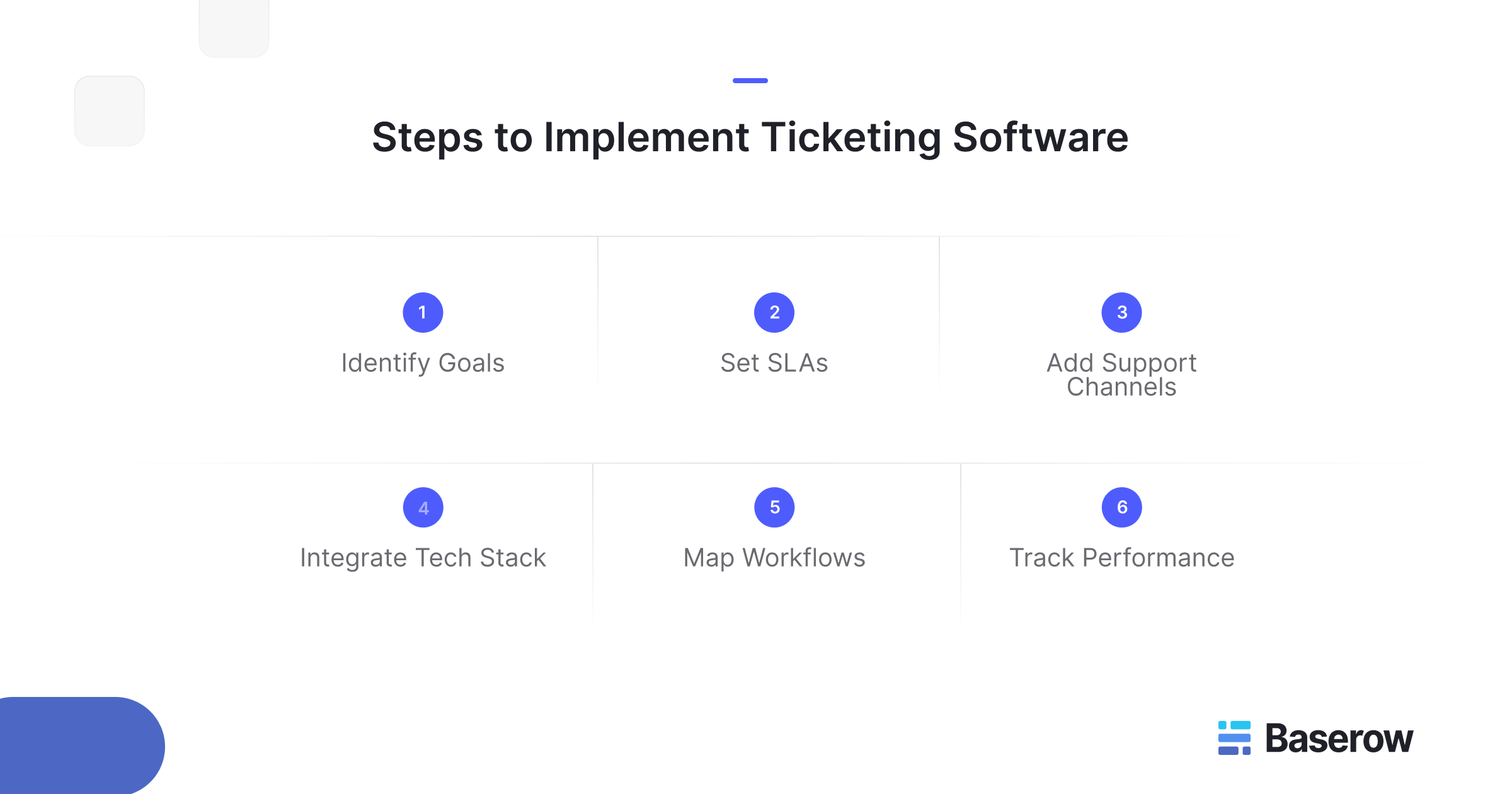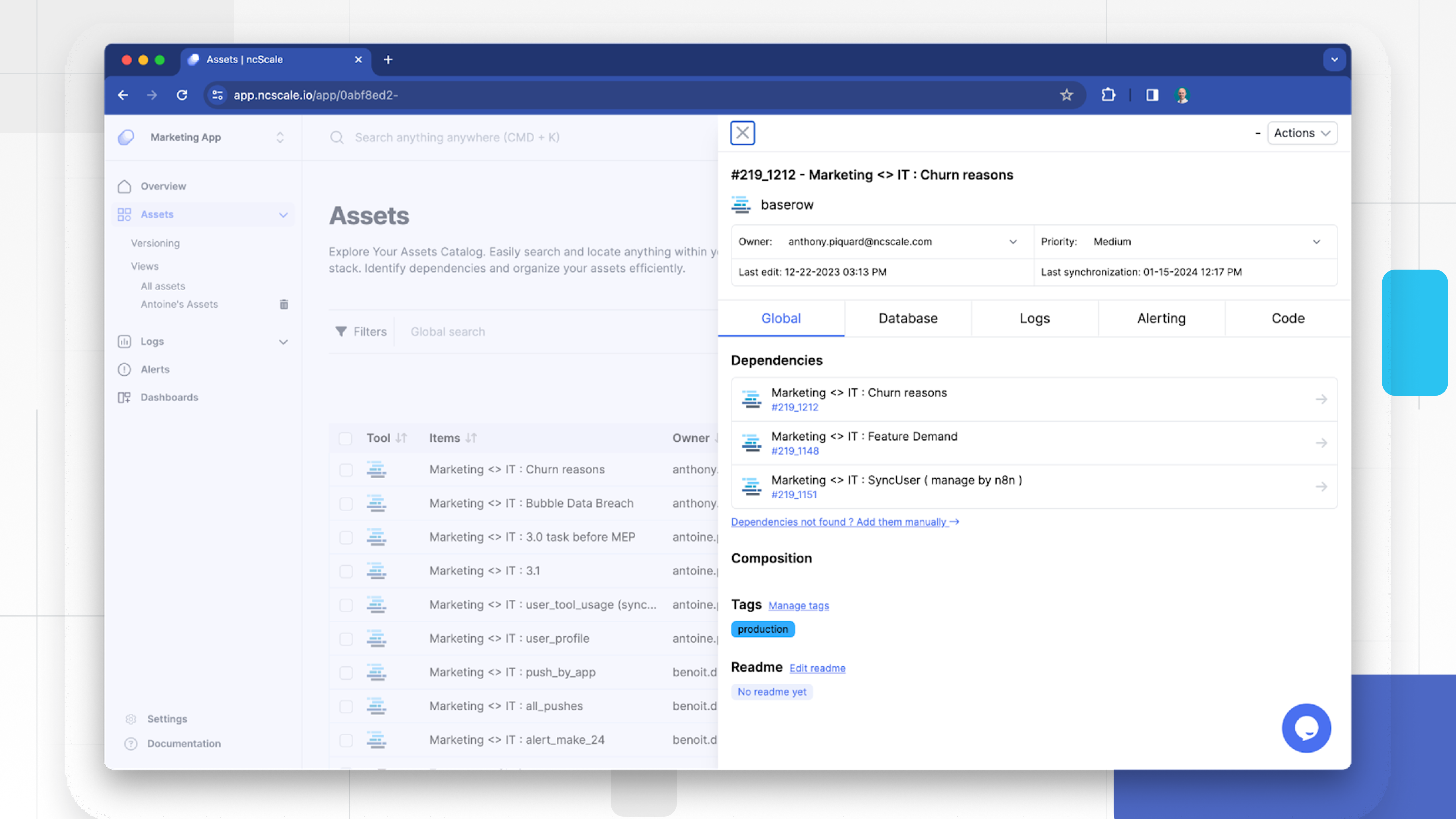
As digital operations scale and customer expectations rise, having the right IT ticketing system is no longer optional—it’s essential. A strong ticketing platform ensures issues are tracked, service requests are prioritized, and support teams remain proactive instead of reactive. Beyond simple issue tracking, modern solutions focus on ticket management, customer satisfaction, and streamlined workflows to deliver exceptional customer experiences.
Whether you’re a startup building your first help desk, a mid-size company aiming to improve response time, or a large enterprise managing high ticket volume, the right desk ticketing software can transform how your support team operates. With technologies like AI-powered ticket routing, omnichannel intake, and real-time dashboards, today’s systems are designed to keep customer support efficient and scalable.
In this article, we’ll explore what IT ticketing systems are, why they matter, and which solutions stand out in 2025. We’ll also look at how low-code platforms like Baserow provide a flexible foundation for building custom ticketing workflows that align with your unique business needs.
What Is an IT Ticketing System and Why It Matters
An IT ticketing system is a digital tool used to log, track, and manage service requests, incidents, and technical issues across an organization. Each ticket acts as a record of a customer or internal user issue, ensuring nothing slips through the cracks.
These systems are central to any service desk strategy because they:
- Collect and organize service requests from multiple channels.
- Track issues from reporting through resolution.
- Maintain compliance with service level agreements (SLAs).
- Help reduce resolution times with built-in workflows.
- Improve customer support experiences through transparency and accountability.
The value of these systems goes beyond resolving technical issues. They act as the backbone of customer support by providing structure, visibility, and efficiency. When properly implemented, a desk ticketing system ensures your support agents have the tools they need to prioritize tasks and deliver faster, more accurate solutions.
.jpg)
Types of IT Tickets
Understanding the different ticket types is crucial in choosing the right software. Most organizations categorize tickets into three main groups:
Incident Tickets
- Represent unexpected disruptions, such as server crashes or software bugs.
- Focus on restoring normal service quickly.
Service Request Tickets
- Routine requests like access to new software, hardware installations, or password resets.
- These are often high in volume but low in complexity.
Problem Tickets
- Root cause analysis for recurring issues.
- Example: Identifying why network outages keep happening.
Managing these effectively ensures faster recovery times, less downtime, and stronger long-term system stability. Many modern desk ticketing software solutions also allow you to customize categories for industry-specific needs.
Key Features of Modern Ticketing Software
Choosing the right platform means looking beyond basic issue tracking. Here are the most important features to evaluate in 2025:
- Ticket Management and Automation
Automation streamlines repetitive tasks like ticket assignment, escalations, and notifications. By removing manual bottlenecks, teams can handle higher ticket volume without sacrificing service quality.
- Omnichannel Support
Customers expect to log tickets via phone, social media, live chat, or email. A strong service desk platform unifies these channels, so support requests are tracked in one place.
- SLA Tracking and Escalation Rules
Meeting service level agreements is critical to maintaining trust. Modern systems include timers, automated escalation workflows, and alerts to help teams stay compliant.
- Real-Time Dashboards and Reporting
Analytics-driven dashboards track resolution times, response time, and overall team performance. This visibility helps managers identify bottlenecks and allocate resources more effectively.
- Knowledge Bases and Self-Service
Integrated knowledge bases empower users to resolve common issues themselves. This not only reduces support requests but also improves customer satisfaction by delivering immediate answers.
- AI-Powered Ticket Routing
Machine learning tools are increasingly embedded into IT ticketing systems, providing intelligent ticket routing and classification. AI helps predict issue types, recommend solutions, and improve efficiency over time.
Choosing the Right Ticketing Software for Your Business
Not every business needs the same type of desk ticketing software. The best fit depends on your business size, ticket volume, and support priorities.
Business Size and Technical Maturity
- Startups & Small Teams: Lean, easy-to-use tools like Zoho Desk or a low-code solution such as Baserow for IT teams. These focus on simplicity and affordability.
- Mid-Sized Companies: Platforms like Zendesk or Freshservice balance automation with manageability.
- Enterprises: Large organizations often require complex IT service management platforms like ServiceNow or BMC Helix.
Customer Support Needs
Your customers’ expectations shape your desk ticketing system. High ticket volumes demand advanced SLAs, omnichannel intake, and robust dashboards. For organizations prioritizing customer satisfaction, solutions with strong knowledge bases and SLA compliance are essential.
Internal Workflows and Team Dynamics
Every desk team operates differently. Some require approval chains, while others prioritize cross-department collaboration. Flexible platforms like Baserow excel here, allowing teams to create ticketing workflows that mirror their real processes rather than adapting to rigid software.
Baserow users in the community often share how they’ve customized workflows to align with unique IT needs—from integrating support ticket intake with CRM systems to automating internal notifications. This adaptability ensures your software grows with your business instead of holding it back.

Why Consider Building a Custom IT Ticketing System?
While pre-built desk ticketing software works well for many teams, custom-built systems offer flexibility that packaged tools can’t always provide. As support operations evolve, businesses often need workflows that are tailored to their unique processes.
- Flexibility
Every organization handles support tickets differently. A custom solution allows you to design ticket forms, routing rules, and escalation processes that reflect your exact needs.
- Cost Efficiency Over Time
Most SaaS tools charge based on user seats or ticket volume. Over time, these costs add up. A custom desk ticketing system built with low-code platforms like Baserow provides predictable, long-term savings while keeping ownership in your hands.
- Faster Innovation
Traditional platforms often require you to wait for vendor updates. With a no-code foundation, you can roll out new automations, dashboards, and integrations in real time without engineering support.
- Better Fit with Existing Stack
Integrations are a major challenge with out-of-the-box tools. Building with low-code allows seamless connections to CRMs, project management platforms, and communication tools your team already relies on.
One Baserow community member shared how they built a ticketing workflow that connected customer support requests directly with their development backlog, reducing duplicate effort and cutting resolution times significantly. This shows how adaptable no-code ticket management can be when compared with rigid, one-size-fits-all platforms.
Baserow: A Flexible Foundation for Custom Ticketing Systems
While many businesses use off-the-shelf tools, an increasing number are turning to low-code solutions like Baserow to build their own ticketing workflows. Baserow offers a visual, no-code interface that makes it easy for teams to create and manage custom IT ticketing systems—without the need for engineering support.
Teams can log service requests, assign issues to the right team member, track resolution time, and even integrate their ticketing workflow with third-party apps through APIs or automation platforms. Whether you’re a small business needing a lean support desk or an enterprise team requiring highly specific workflows, Baserow provides the control and adaptability that standard tools often lack.

Other IT Ticketing Systems to Consider
Here’s a breakdown of leading IT ticketing systems worth evaluating this year, from enterprise-grade tools to flexible no-code options.
- Jira Service Management
Jira is a favorite among development-heavy organizations. Originally built for software teams, it now supports service desk operations with features like SLA tracking, automation, and ticket routing. Jira integrates deeply with tools like Bitbucket and Confluence, making it ideal for technical environments.
- Pros: Robust workflows, developer-friendly integrations.
- Cons: Steeper learning curve for non-technical users.
2. Zendesk
Zendesk is designed with customer-facing support in mind. It enables omnichannel service requests across email, phone, chat, and social media, ensuring seamless customer experiences. It also includes knowledge bases and SLA tracking.
- Pros: Intuitive interface, excellent customer experience tools.
- Cons: Pricing can rise with high ticket volume.
3. Freshservice
Freshservice specializes in IT service desk operations. It covers incident, problem, change, and asset management with automation built-in. It’s also known for being user-friendly, with a mobile app that enables support on the go.
- Pros: Streamlined UI, strong SLA compliance.
- Cons: Less customizable than enterprise ITSM tools.
4. ServiceNow
ServiceNow is one of the most well-known enterprise ITSM platforms. It offers AI-powered ticket classification, predictive analytics, and full-stack visibility across IT operations. Large enterprises rely on ServiceNow for governance, compliance, and scalability.
- Pros: Highly customizable, enterprise-grade capabilities.
- Cons: Complex setup, significant investment required.
- 🔍 Explore ServiceNow alternatives.
5. Zoho Desk
Zoho Desk combines affordability with functionality. It supports ticket management across departments, AI-powered suggestions for ticket resolutions, and SLA monitoring. Its built-in knowledge base and sentiment analysis tools improve customer satisfaction.
- Pros: Cost-effective, easy adoption for small to mid-sized teams.
- Cons: Limited features compared to larger enterprise solutions.
6. BMC Helix ITSM
BMC Helix brings intelligence to IT ticketing. With AI-powered routing, predictive insights, and chatbot-driven resolutions, it helps reduce response time and improve SLA compliance.
- Pros: Strong AI-driven automation.
- Cons: Best suited for organizations with mature ITSM needs.
7. Custom with Baserow + DronaHQ
For teams seeking full control, combining Baserow with a workflow builder like DronaHQ enables a truly customized desk ticketing system.
- Create custom ticket forms with fields for urgency, category, and resolution times.
- Automate ticket routing rules and notifications.
- Integrate support ticket data with CRMs or communication platforms.
- Build real-time dashboards for SLA tracking and ticket volume monitoring.
This low-code stack is particularly valuable for industries with unique workflows, such as education, healthcare, or logistics, where off-the-shelf tools may not fit well. You can explore Baserow alternatives to see how it compares with standard market options.
Building with Baserow: Your Agile Ticketing Foundation
Baserow isn’t just a database platform—it’s a no-code foundation for creating systems that align with your operations. For IT ticketing, it provides the structure and flexibility needed to design workflows that scale.
With Baserow, teams can:
- Build custom ticket forms for support requests.
- Automate ticket assignment and escalation workflows.
- Track SLAs and resolution times using Kanban views and filters.
- Collaborate across the service desk with attachments, comments, and notifications.
- Access real-time dashboards for performance monitoring.
The Baserow IT department hub highlights how IT teams use it to replace traditional tools and design adaptable, scalable solutions. This ensures that as your organization grows, your desk ticketing system evolves with you.
The Future of IT Ticketing Systems
IT ticketing systems are evolving quickly to meet rising demands for speed, personalization, and efficiency. Several trends are shaping the future of service desk operations:
- AI-Powered Workflows Ticket routing, classification, and even first-line resolutions are increasingly handled by AI-powered systems. This reduces manual effort and ensures tickets are directed to the right agents faster.
- Predictive Analytics Modern platforms don’t just respond to problems; they anticipate them. Predictive tools analyze ticket history and patterns to forecast issues before they disrupt business.
- Chatbot-Driven Support Virtual assistants are handling more service requests in real time, from password resets to system checks, freeing up human agents for complex issues.
- Stronger Integration Across Tools Ticketing is no longer isolated. The best systems integrate with CRMs, project management tools, and knowledge bases, ensuring seamless workflows and better customer experiences.
Flexibility will continue to be the deciding factor. While enterprise platforms dominate the ITSM space, many organizations are leaning toward customizable, no-code systems like Baserow that allow them to build support ticket workflows tailored to their needs.
Frequently Asked Questions
-
What are ticketing systems in IT? They are software platforms that log, track, and manage IT support requests, ensuring issues are resolved efficiently.
-
What is the most common IT ticketing system? Popular systems include ServiceNow, Jira Service Management, and Zendesk, each serving different business sizes and needs.
-
What is the ITSM ticketing system? It refers to IT Service Management ticketing, where incidents, problems, and service requests are handled within a structured ITSM framework like ServiceNow or BMC Helix.
-
Is Jira a ticketing system? Yes, Jira Service Management provides a desk ticketing system that supports service requests, SLA management, and integration with developer tools.
Final Thoughts
The best IT ticketing systems empower teams to deliver faster resolutions, improve customer satisfaction, and maintain compliance with service level agreements. Whether you’re a small business handling modest ticket volume or an enterprise managing complex IT environments, the right platform makes all the difference.
For teams seeking adaptability and real-time customization, Baserow offers a powerful no-code foundation. With Baserow, you can design a desk ticketing system that reflects your unique workflows, automate support requests, and monitor resolution times—all without writing a single line of code.
👉 Ready to build a ticketing system that scales with your business? Start building with Baserow today.

Baserow 2.1 is a maintenance-focused release that improves performance, security, and reliability. It introduces Expert formula mode, Nuxt 3 and Django upgrades, bug fixes, PostgreSQL 14+ support for self-hosters, and a new Ukrainian translation.

Discover how Airtable and Baserow compare in features, flexibility, speed, and scalability. Compare pricing plans and hidden costs to make an informed decision!

Explore the best open-source software alternatives to proprietary products. Discover OSS tools, licenses, and use cases with our updated directory.
